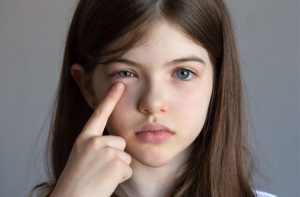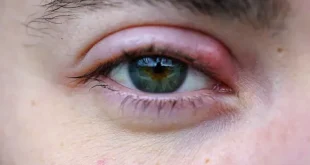Rubbing your eyes may seem like a harmless habit, especially when you’re feeling tired or experiencing discomfort. However, frequent eye rubbing can lead to various issues, some of which may have lasting effects on your eye health. In this article, we’ll explore what happens when you rub your eyes too much, the potential risks involved, and tips on how to care for your eyes properly.
Why Do People Rub Their Eyes?
Common Reasons for Eye Rubbing
Before diving into the consequences, it’s essential to understand why people rub their eyes. Some common reasons include:
- Allergies: Pollen, dust, and pet dander can irritate the eyes, prompting the urge to rub them.
- Fatigue: Lack of sleep can make your eyes feel heavy and uncomfortable.
- Dryness: Extended screen time or dry environments can lead to dryness, causing irritation.
- Itching: Conditions like conjunctivitis or blepharitis can lead to itching, making you want to rub your eyes for relief.
The Reflex Action
Rubbing your eyes can be a natural reflex. When your eyes feel uncomfortable, rubbing may provide temporary relief. However, this relief is often short-lived and can lead to further issues.
The Immediate Effects of Eye Rubbing
Irritation and Redness
When you rub your eyes, you’re applying pressure to delicate tissues. This can lead to immediate irritation and redness. The blood vessels in the eyes can dilate, making them appear more pronounced and red.
Discomfort
While you might rub your eyes to relieve discomfort, the act can often make things worse. Rubbing can exacerbate the feeling of itchiness or dryness, creating a cycle of irritation.
Tear Film Disruption
Your eyes are covered by a thin layer of tears, known as the tear film. Rubbing can disturb this film, leading to uneven distribution and further dryness.

Long-Term Consequences of Excessive Eye Rubbing
Corneal Damage
One of the most concerning risks of frequent eye rubbing is damage to the cornea. The cornea is the transparent front part of the eye. Excessive rubbing can lead to:
- Corneal Abrasions: Rubbing can scratch the surface of the cornea, leading to painful abrasions that may require medical treatment.
- Corneal Ectasia: In severe cases, persistent rubbing can weaken the corneal structure, leading to a condition known as keratoconus, where the cornea bulges outwards.
Increased Risk of Eye Infections
Your hands carry bacteria and other pathogens. Rubbing your eyes can transfer these germs to your eye, increasing the risk of infections like:
- Conjunctivitis (Pink Eye): This condition can be contagious and is characterized by redness, swelling, and discharge.
- Blepharitis: This is an inflammation of the eyelids that can be exacerbated by rubbing.
Changes in Eye Shape
For some individuals, particularly those who already have certain eye conditions, excessive rubbing can lead to changes in the shape of the eye over time. This can affect vision and may require corrective lenses or surgery.
Conditions Made Worse by Eye Rubbing
Allergies
If you have allergies, rubbing your eyes may provide temporary relief but can ultimately worsen your symptoms. This can lead to a cycle of itching and rubbing, making your eyes even more irritated.
Dry Eye Syndrome
For those already suffering from dry eyes, rubbing can aggravate the condition. It can cause further evaporation of tears and disrupt the tear film, leading to increased dryness and discomfort.
Astigmatism
If you have astigmatism, frequent rubbing can worsen the condition by affecting the cornea’s shape. This can lead to more pronounced vision issues.
Tips to Avoid Rubbing Your Eyes
Identify Triggers
Understanding what triggers your eye rubbing is the first step in prevention. Whether it’s allergies, fatigue, or dryness, addressing the underlying cause can help reduce the urge to rub your eyes.
Use Eye Drops
If dryness or irritation is the cause, consider using lubricating eye drops. These can help soothe your eyes without the need for rubbing.
Practice Good Hygiene
Always wash your hands before touching your face, especially your eyes. Keeping your hands clean can help minimize the risk of transferring bacteria to your eyes.
Get Enough Sleep
Fatigue is a common reason for eye rubbing. Ensure you get adequate sleep to help reduce discomfort and the urge to rub.
Follow the 20-20-20 Rule
If you spend long hours in front of screens, practice the 20-20-20 rule. Every 20 minutes, look at something 20 feet away for 20 seconds. This can help reduce eye strain and the desire to rub.
When to See a Doctor
Persistent Symptoms
If you find yourself rubbing your eyes frequently and experience persistent symptoms like redness, pain, or discharge, it’s essential to consult an eye care professional. They can assess your condition and recommend appropriate treatments.
Sudden Changes in Vision
If you experience sudden changes in vision, such as blurriness or the appearance of spots or flashes, seek medical attention immediately. These could be signs of a more serious condition that requires prompt care.
Frequent Infections
If you suffer from recurrent eye infections or allergies, consider seeing an allergist or ophthalmologist. They can provide treatment options and strategies to manage your symptoms effectively.

Alternative Relief Methods
Cold Compresses
Using a cold compress can soothe irritated eyes. Apply a clean, cold cloth over your closed eyes for a few minutes to reduce swelling and redness.
Antihistamines
If allergies are the cause of your eye discomfort, over-the-counter antihistamines can help reduce symptoms. Always consult a healthcare professional before starting any new medication.
Maintain Proper Lighting
Ensure your workspace is well-lit to reduce eye strain. This can help alleviate the discomfort that often leads to eye rubbing.
Conclusion
Rubbing your eyes may provide temporary relief, but excessive eye rubbing can lead to several issues, including irritation, infections, and even long-term damage to your vision. By understanding the risks and implementing strategies to care for your eyes, you can reduce the urge to rub and protect your eye health. If you experience persistent discomfort or have concerns about your eye health, consult a professional for personalized advice and treatment options. Remember, taking care of your eyes today can help ensure a clearer vision for tomorrow.
